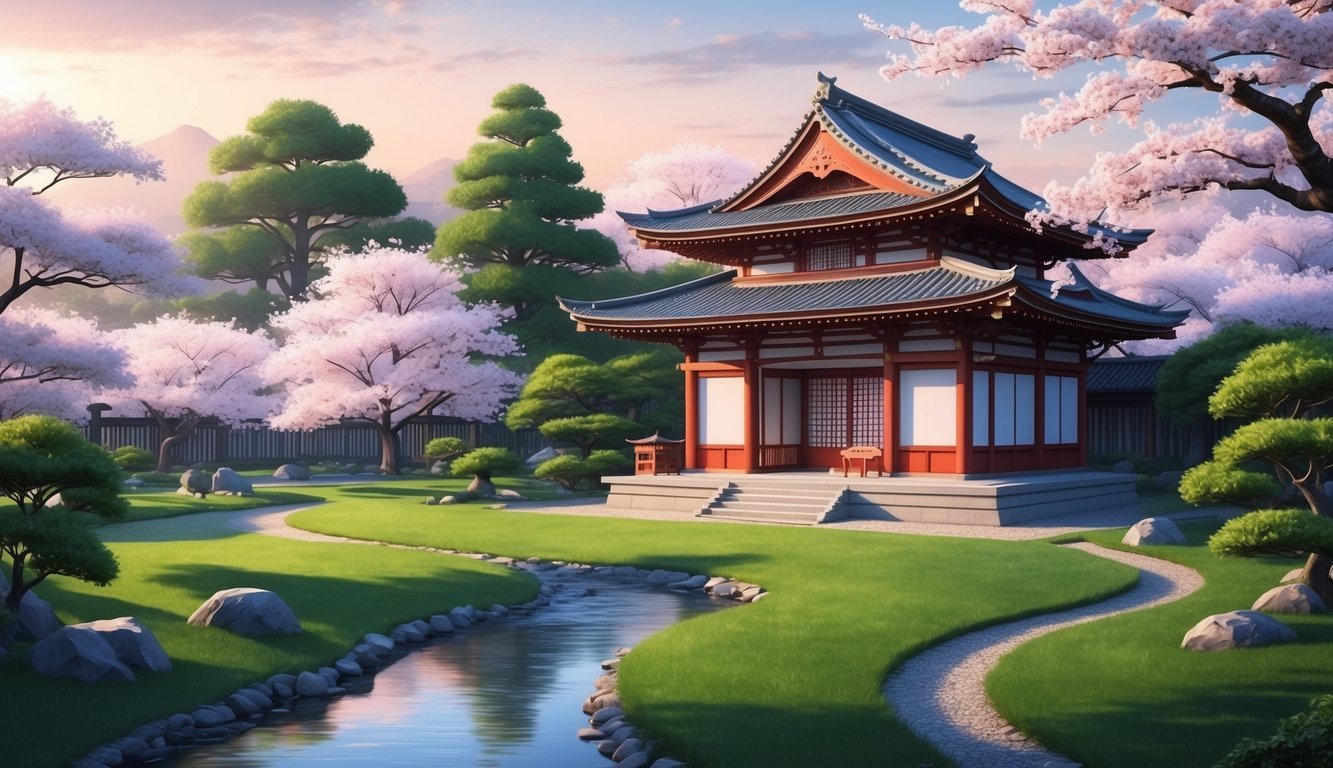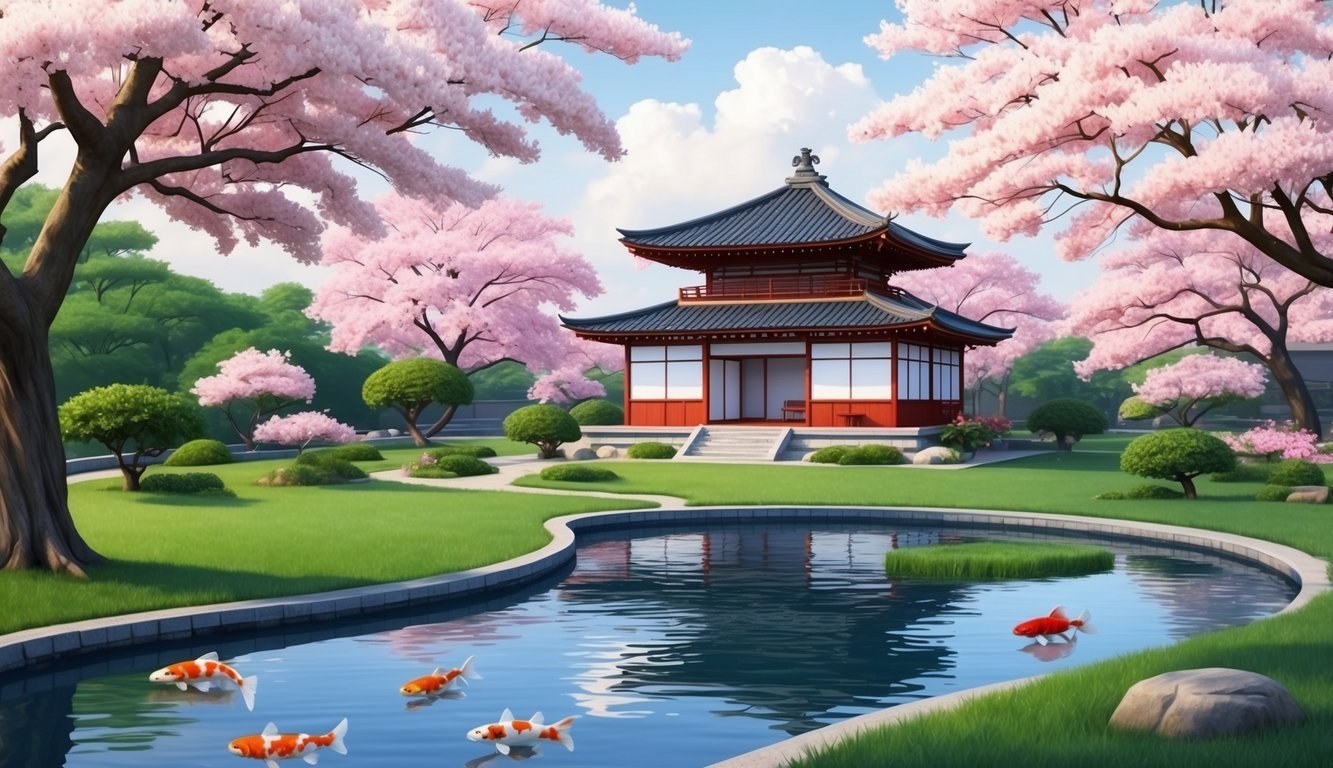If you’re curious about Japan, exploring its literature can give you unique insights into its culture and history. From timeless classics to contemporary reads, many books capture the essence of this fascinating country.
Finding the best books about Japan can enrich your understanding and enhance your experience when you visit.
Whether you’re interested in history, folklore, or everyday life, there’s a book for you. These works not only tell captivating stories but also offer different perspectives that reflect Japan’s rich heritage and modern-day vibrancy.
Finding the best books about Japan can enrich your understanding and enhance your experience when you visit.
Cultural Insights From Japanese Literature

Japanese literature offers a window into the culture, values, and experiences of its people. Through fiction and historical context, you can gain a deeper understanding of what shapes Japanese society today.
Understanding Japanese Society Through Fiction
Fiction in Japanese literature often reflects societal norms and family dynamics. Novels like “Norwegian Wood” by Haruki Murakami delve into themes of love, loss, and emotional struggles.
You’ll find that characters frequently grapple with personal identity while navigating societal expectations. This blend of individual and collective experiences allows you to see how deeply personal stories highlight broader cultural themes.
Readers also encounter the concept of wa, which signifies harmony in relationships. This idea is often portrayed in conflicts where characters must balance their desires with social roles. Engaging with these narratives gives you valuable insight into Japanese values and interpersonal relationships.
The Influence of Historical Events on Japanese Writing
Historical events have profoundly shaped Japanese literature. For example, the aftermath of World War II produced important works that explore trauma and recovery.
Authors like Natsume Sōseki, whose novel “Kokoro” reflects on the Meiji Restoration, offer a glimpse into Japan’s rapid modernization and its impact on identity.
You can observe how literature serves as a medium for processing collective memories, showcasing resilience and cultural shifts. Similarly, contemporary writers often draw from Japan’s rich history to address modern issues, keeping the past alive in their narratives.
This intertwining of history and literature helps you appreciate Japan’s deep legacy and the ongoing conversation between past and present.
Literary Genres to Explore

Japan has a rich literary tradition that ranges from modern fiction to ancient poetry. Each genre offers unique insights into Japanese culture and society. Here are two key genres you should explore.
Contemporary Japanese Fiction
Contemporary Japanese fiction reflects the complexities of modern life in Japan. Authors like Haruki Murakami and Banana Yoshimoto capture the everyday experiences, dreams, and struggles of people today.
You can find a mix of themes, such as loneliness, love, and identity, wrapped in both surreal and realistic storytelling. Popular works like “Norwegian Wood” often address universal emotions, making them relatable even for international readers.
Visiting local bookstores during your trip can lead you to exciting new voices as well. Many contemporary novels also come with translations, allowing you to enjoy great stories even if you’re not fluent in Japanese.
Classical Japanese Poetry and Essays
Classical Japanese poetry and essays reveal the country’s historical and cultural heritage. Forms like haiku and tanka focus on nature, emotions, and fleeting moments.
Famous poets such as Matsuo Bashō and Yosa Buson are worth reading for their skillful use of language and imagery. These works often require reflection and appreciation of simplicity.
In addition to poetry, essays from writers like Sei Shonagon or Matsuo Bashō provide insights into life during Japan’s Heian period. This genre can deepen your understanding of traditional Japanese aesthetics and philosophies.
Exploring Themes in Japanese Books
Japanese literature often reflects deep connections to nature and complex family dynamics. You’ll see how these themes shape characters’ lives and influence their choices.
Nature and Minimalism
Nature is a central theme in many Japanese books. Authors often highlight the beauty and simplicity of the natural world. This connects to the concept of mono no aware, which translates to the beauty of impermanence.
In works like The Tale of Genji, you’ll notice how seasons and scenery influence emotions and actions. The presence of cherry blossoms often symbolizes fleeting beauty and the passage of time. Additionally, minimalist descriptions frequently paint vivid imagery without overloading the reader.
Reading these passages can deepen your appreciation for how nature intertwines with daily life in Japan.
Family and Relationships
Family bonds take center stage in many Japanese narratives. You might read about the pressures of family expectations or the warmth of close-knit connections. These stories often reflect traditional values, such as respect for elders and the importance of harmony.
Works like Norwegian Wood by Haruki Murakami explore love, loss, and the complexities of relationships. Characters often navigate personal struggles while trying to maintain family ties.
Through these stories, you’ll gain insight into Japanese social norms and how relationships shape individual identity. Exploring these themes can offer a richer understanding of Japanese culture.
Frequently Asked Questions
You might have some questions about finding the best books about Japan. From novels to books on culture and history, there’s a lot to explore.
What are some of the top novels set in Japan?
Some popular novels set in Japan include “Norwegian Wood” by Haruki Murakami and “The Tale of Genji” by Murasaki Shikibu. These stories offer deep insights into Japanese culture and the human experience.
Can anyone recommend good books to learn about Japanese culture and history?
For understanding Japanese culture, “Japanese Business Culture and Practices” by Isao Takei and Jon P. Alston is excellent. You might also enjoy “Japan Unmasked” by Kiyoshi Matsumoto for a broader view of Japanese society.
Which are the best Japanese books available in English?
Top choices include “The Wind-Up Bird Chronicle” by Haruki Murakami and “I Am a Cat” by Natsume Sōseki. Both authors have made significant contributions to literature and provide unique perspectives on Japanese life.
I’m looking for books on Japanese history—any must-reads?
Consider “A Modern History of Japan” by James L. McClain. It’s thorough and offers insights into Japan’s path through modernization. Another good read is “The Making of Modern Japan” by Johan W. K. van Wilgenburg.
What’s a famous book originating from Japan that I should check out?
A classic is “The Tale of Genji” by Murasaki Shikibu. This work is often called the world’s first novel and offers a view into the Heian period and its court life.
Are there any romantic novels about Japan that come highly recommended?
You might like “Love in a Fallen City” by Eileen Chang. It does not take place exclusively in Japan, but it explores themes of love and longing that resonate with Japanese culture. Another good option is “Kitchen” by Banana Yoshimoto, which blends romance and family ties beautifully.

